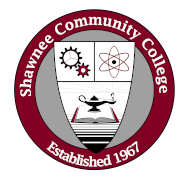
Shared Governance Manual
2025-26
Ad-Hoc Committee Member – An individual who is appointed or selected to participate in a specific Council/Team to address a specific issue or to accomplish a specific goal.
Administrative Rules – Specific statements, adopted by the College’s Administration, that define behavioral standards and expectations for students, employees, and other individuals that use College resources.
Administrative Policy – Broad statements, adopted by the College’s Administration, that inform students, employees, and the community about the rules of the College’s operation and the appropriate use of College resources, which are consistent with public statutes and accreditation standards. Policy categories include Academic Affairs, Administrative & Business Services, Human Resources, and Student Affairs.
Board – All seven elected Trustees acting as a group that have authority and responsibility defined in the Illinois Community College Act.
Board Policy – Broad rules, guidelines, and expectations adopted by the Board that clarify parameters of College operation, which are consistent with public statutes and accreditation standards. Policy categories include: Strategic Outcomes, Delegation of Authority, Executive Limitations, and Bylaws. Generally, all policy statements include an expression of value and direction to the Chief Executive Officer (CEO). Strategic Outcome policies may include reporting and feedback expectations.
Board Bylaws – rules, guidelines, and expectations adopted by the Board that clarify parameters of Board operation, which are consistent with public statute and accreditation standards.
CEO – The Board’s primary employee that performs the functions outlined in the Illinois Community College Act. The President is the CEO of the College.
CFO – The Vice President of Administrative Services is the College’s Chief Financial Officer (CFO). The CFO is an employee of the College and is hired by and reports to the CEO.
College – The collective of the Board and all of the College’s employees, including the CEO.
Community Stakeholders – The term community stakeholders encompass the College’s entire service area including (but not limited to): County and neighboring residents; students; area school districts; local, regional and state businesses and employers; alumni; benefactors; investors; local, regional and state governmental entities and agencies; university/college partners and others that may be affected in a broad sense by the strategic outcomes to be determined by the Board.
Delegation of Authority Policies – Describe how authority and accountability are delegated to the CEO; describe the Board’s expectations and how the Board will monitor CEO performance; and establish parameters for how the Board will engage with College employees.
Executive Limitation Policies – Constrains CEO executive authority by establishing prudent and ethical boundaries within which all operational activity and decisions must take place.
Governance Process Bylaws – Special bylaws that specify how the Board conceives, carries out, and monitors its oversight role.
Guidelines – Specific statements that provide decision-making parameters for employees who are completing a task or process.
Operational Activities (i.e., Means) – Used in many Board policies and alludes to the administrative and operation functions of the College that are the responsibility of the CEO. Examples include: administrative activities of the college; actions, plans, program services and operations used to achieve the Board’s Strategic Outcomes. These describe how the Strategic Outcomes will be achieved.
Operating Standards – Specific statements clarifying the steps needed to successfully complete a task or process. Generally, these statements are aimed at establishing efficiency, consistency, responsibility, and accountability.
Policy/Policies – Guiding or governing principles, used as a basis for making decisions in furtherance of the College’s mission and values. Policy does not include operating standards used to implement the policy.
Simple Majority – Refers to a voting system where the most votes win.
Strategic Outcome Policies – The College’s purpose, vision, mission, strategic plan, and other related statements that clearly state the desired results of the College’s actions; the benefits of college programs and services from the community’s perspective (i.e., describes the needs to be met, for whom, and at what cost); and establish a framework for accountability.
Substantive Change – Changes that materially change the intent, direction, or impact of a policy.
Supermajority – Five or more votes on an issue or decision from Trustees at a properly noticed public meeting.
Trustee – Any duly elected qualified person residing within the College’s district as noted in the Illinois Community College Act.
